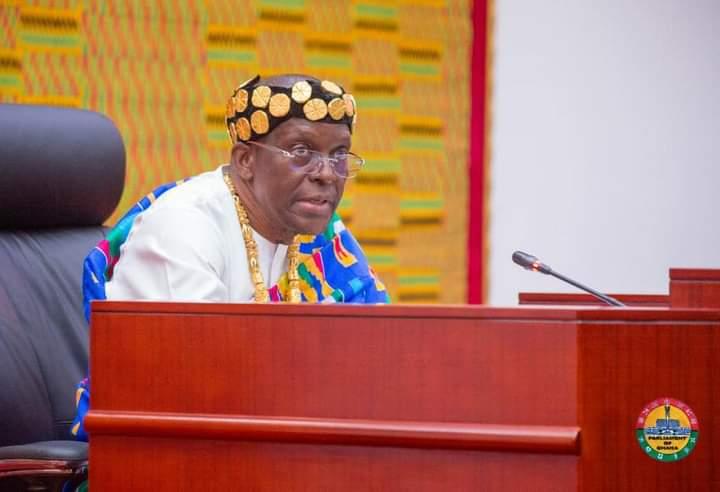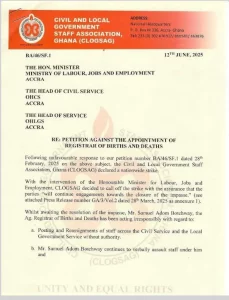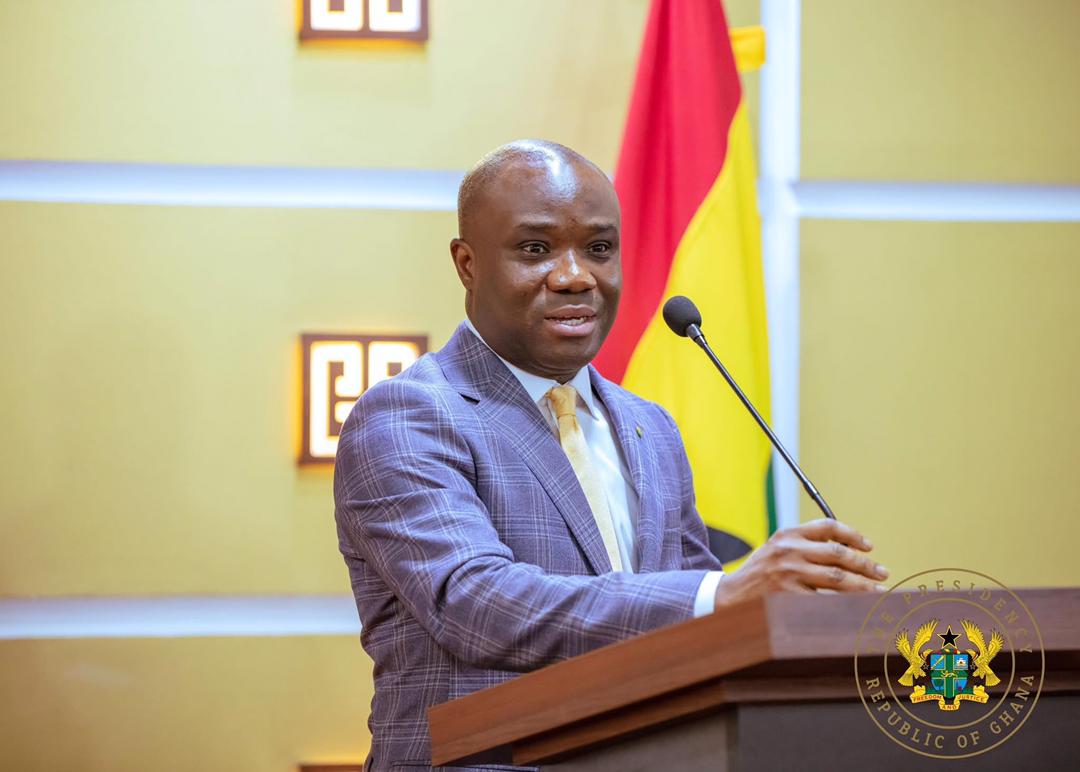
Supreme Court nominee, Justice Dennis Dominic Adjei, has made a passionate call for the abolition of the mandatory death penalty in Ghana, warning that the practice violates the fundamental right to life and exposes the country to international legal consequences.
Appearing before Parliament’s Appointments Committee on Monday, June 16, 2025 Justice Dennis Dominic Adjei argued that judges must be given the discretion to impose sentences in capital punishment cases, instead of being bound by rigid legal mandates.
He insisted that judicial discretion is critical to upholding both Ghana’s constitutional values and its international obligations.
“I agree that the mandatory imposition of the death sentence is wrong. We must respect life. The judge who heard the matter should have the discretion either to give a number of years or impose the death sentence,” Justice Dennis Dominic Adjei said.
He cited specific offences such as treason and serious military crimes under the Armed Forces Act (Act 105), which currently mandate the death sentence upon conviction and warned that this blanket approach is out of step with Article 4 of the African Charter on Human and Peoples’ Rights, which guarantees the right to life.
As a sitting judge at the African Court on Human and Peoples’ Rights, Justice Dennis Dominic Adjei drew from precedents where similar laws in Tanzania and Benin were struck down by the Court.
“The African Court has variously held that any decision by any country that does not give judge discretion in the imposition of the death sentence is in violation of Article 4,” he explained.
“If cases from Ghana happen to go before the court, we are going to face the same fate. We are going to lose.”
Justice Dennis Dominic Adjei’s firm stance on capital punishment was part of a broader set of progressive and reform-oriented views he expressed during his vetting.
He repeatedly emphasised the need to modernise Ghana’s justice system, strengthen judicial independence and resolve longstanding inconsistencies in national laws.
One of the critical areas he addressed was the controversial practice of assigning Superior Court Judges, particularly those from the Court of Appeal or Supreme Court, to sit as “additional judges” in lower courts.
Describing the practice as outdated and susceptible to undue influence, he urged Parliament and the Judicial Council to scrap it.
“As a judge, judges sitting in court as additional judges – that one should be abolished,” he stated. “We have enough High Court judges. Why is it that if there is a case to be tried by a High Court judge, we ask a Court of Appeal judge to go and sit?”
Justice Dennis Dominic Adjei warned that such arrangements could compromise judicial independence and blur the clear lines between different levels of the judiciary.
“We are talking about human influence and we must reduce it, we must curb it,” he said, noting that after reviewing constitutional systems across Africa, he found no other jurisdiction that permits such crossover arrangements.
In yet another critical contribution to the national legal discourse, Justice Dennis Dominic Adjei raised questions about the discrepancy between the legal age for sexual consent and the legal age for marriage in Ghana. Ghana’s Criminal Offences Act permits sexual consent from age 16, while the Children’s Act sets the minimum legal marriage age at 18.
“If you cannot marry at 16, why have sex at 16?” he asked pointedly. His question spotlights the long-standing contradiction that has fueled concerns from child rights advocates, who argue that the gap exposes young girls to exploitation, early pregnancy and legal ambiguity in defilement cases.
The Supreme Court nominee also addressed the importance of judicial neutrality in the handling of controversial human rights matters, such as LGBTQ rights.
He made it clear that while judges may hold personal religious beliefs, they must uphold their judicial oath to apply the law impartially.
“We talk about our faith – it could be Christian, Muslim – but that is your personal faith,” he explained.
“When you are in the courtroom, you have taken the judicial oath, which says you shall be impartial, irrespective of the persons involved.”
Drawing on his experience at the African Court on Human and Peoples’ Rights, he added, “These are exactly the sorts of issues that come before us. But we do not bring our faith to bear in those decisions. If I allow my faith to guide my judgement, then I have abdicated my seat as a judge.”
The post Mandatory Death Penalty Violates Right To Life -Justice Adjei appeared first on The Ghanaian Chronicle.
Read Full Story














Facebook
Twitter
Pinterest
Instagram
Google+
YouTube
LinkedIn
RSS